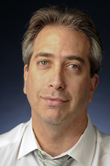IDJC Welcomes Fall 2025 Visiting Fellows Nathaniel Rakich and Miranda Spivack
The Institute for Democracy, Journalism and Citizenship (IDJC) has named Nathaniel Rakich and Miranda Spivack as visiting fellows for fall 2025. The IDJC Visiting Fellows program brings in thought leaders in journalism, politics or public affairs to collaborate with Syracuse…


 Recent revelations about the U.S. government’s surveillance programs in counterterrorism have jarred the American public into a debate about privacy rights versus national security.
Recent revelations about the U.S. government’s surveillance programs in counterterrorism have jarred the American public into a debate about privacy rights versus national security.